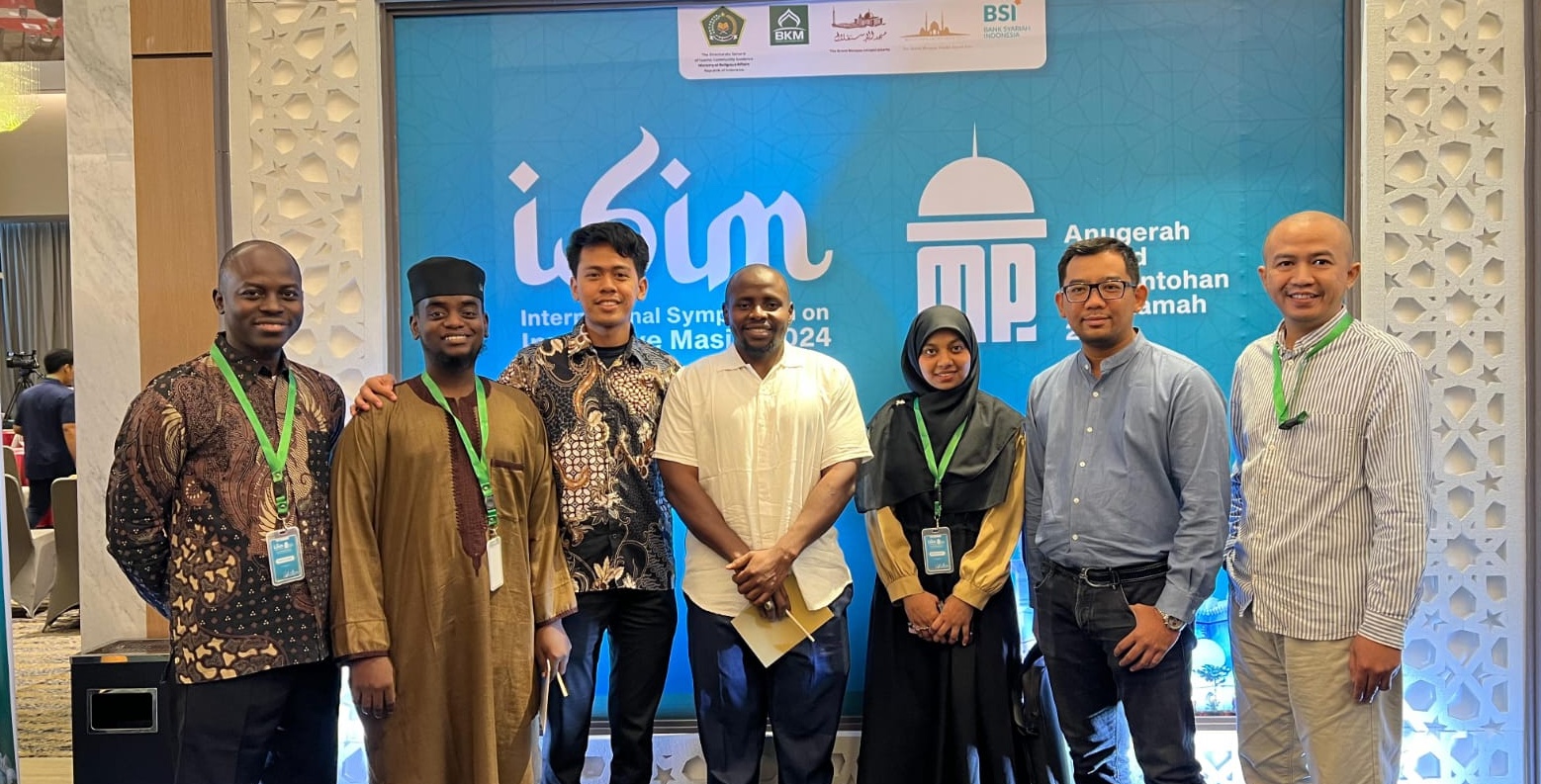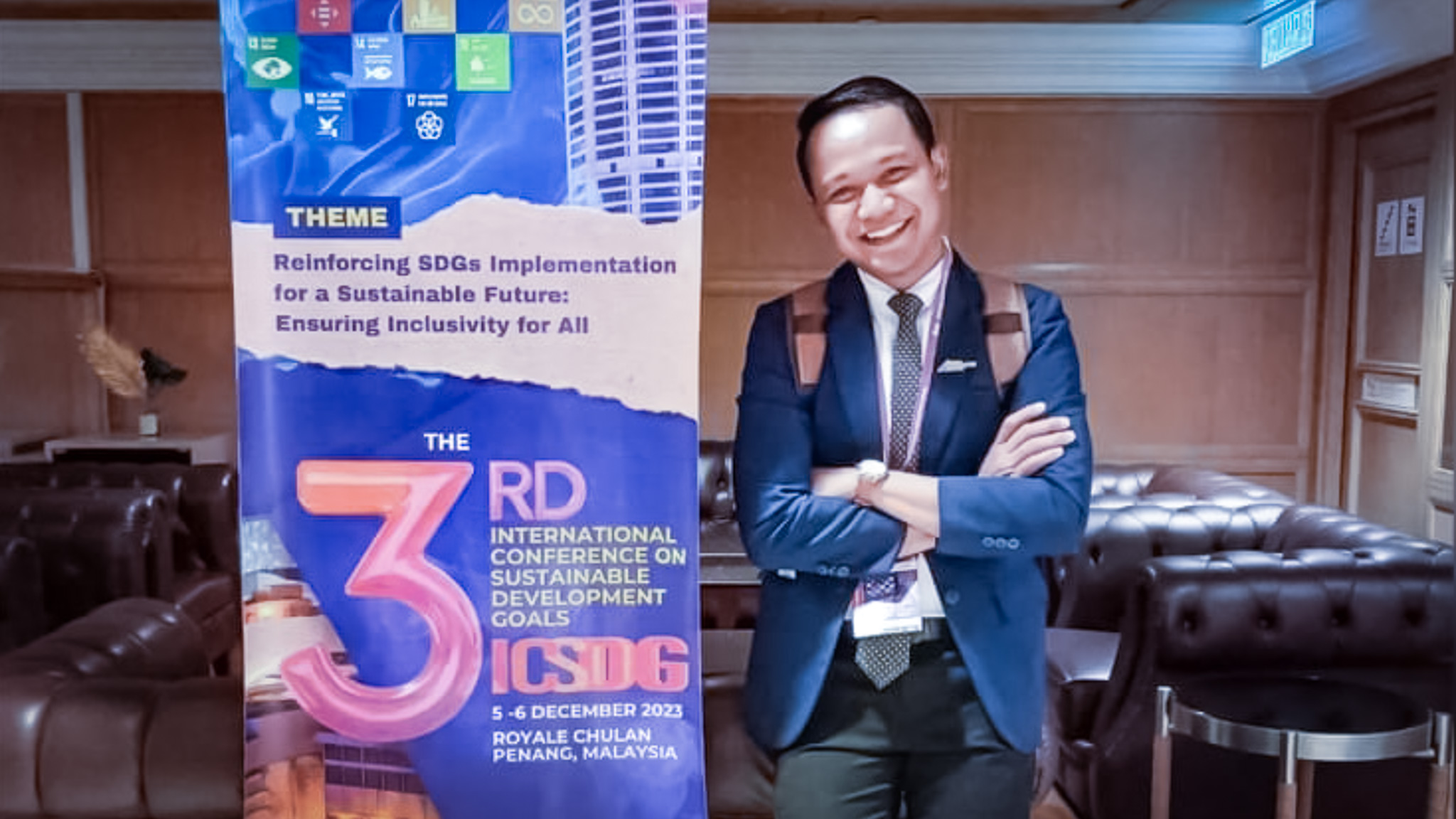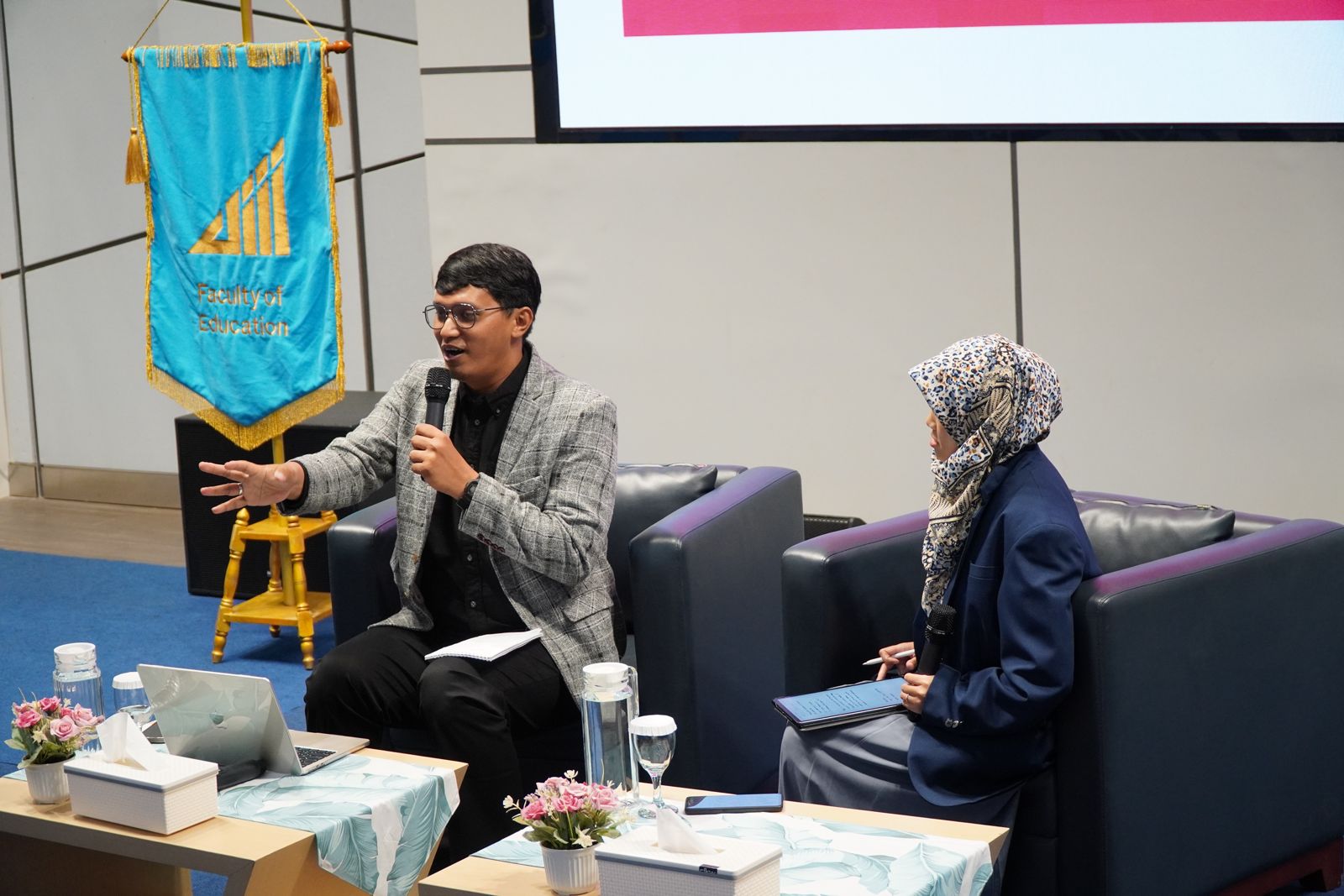Rohingya Resilience: Dr. Aizat Bin Khairi Advocates for Inclusivity in Malaysia
December 09, 2023Contributor: Saemah Shamim | Editor: Ari Stoltze

DEPOK, UIII.AC.ID - On December 8, 2023, Dr. Aizat Bin Khairi delivered a moving lecture at UIII's Faculty of Social Sciences, addressing the crucial theme of "The Journey towards Inclusivity: Community-Based Organizations and Rohingya in Malaysia." In a captivating presentation, Dr. Khairi shed light on the formidable challenges Rohingya refugees face in Malaysia, particularly within the context of community-based organizations providing vital temporary shelter.
Dr. Khairi commenced his talk by offering historical insights, referring to Rohingya refugees as "boat people" due to their perilous sea journeys. The lecture unfolded to reveal the stark reality that, despite the historical context, life for Rohingya refugees in Malaysia remains largely unchanged and fraught with instability.
At the heart of Dr.Khairi's message lay the role of community-based organizations composed of Rohingya refugees. These organizations, operating without official government recognition due to a lack of legal registration, play a pivotal role as intermediaries between the Rohingya community and local non-governmental organizations (NGOs). They serve as conduits for material contributions and financial assistance, providing a lifeline for a community grappling with uncertainty.
One of the primary challenges highlighted by the speaker is the Malaysian government's refusal to officially recognize Rohingya refugees, categorizing them as illegal immigrants. Nevertheless, humanitarian considerations allow for a temporary stay, creating what Dr.Khairi described as a "never-ending temporary" situation. This perpetual state of uncertainty poses immense challenges for the Rohingya community striving for stability and a sense of belonging in Malaysia.
Dr. Khairi passionately articulated the expectations harbored by Rohingya refugees—specifically, the yearning for government recognition. Recognition, he asserted, is not merely a symbolic gesture but a critical step toward enabling the community to build better lives in Malaysia. It is seen as a pathway to stability, integration, and improved living conditions for a group that has endured displacement and adversity.
Against the backdrop of these challenges, Dr. Aizat Bin Khairi's lecture served as a compelling call for inclusivity and acknowledgment. Despite their lack of legal standing, community-based organizations continue to stand resilient, acting as pillars of support for the Rohingya community. The lecture resonates as a powerful commentary on the urgent need for a more inclusive approach, compassionate policies, and international understanding to address the ongoing struggles faced by Rohingya refugees in Malaysia.
DR. Aizat Bin Khairi’s lecture underscores the pressing need for transformative policies and reevaluating the treatment of displaced communities. As the world grapples with complex issues of migration and displacement, his words serve as a compelling reminder that the path towards inclusivity demands not just empathy but proactive and compassionate actions from governments, NGOs, and society at large. In the face of adversity, his concluding remarks inspire a collective commitment to fostering a more welcoming and supportive environment for those seeking refuge and a better life in Malaysia.
- UIII Extends Application Deadline for 2025 International Admissions
- What Does Eid al-Fitr Mean for the UIII Academic Community?
- UIII PhD Scholar Ararat Kostanian Delivers Lecture at Armenia's Yerevan State University
- Swedish Ambassador to Indonesia Applauds UIII’s Vision, Explores Future Collaboration
- Depok Mayor Supports UIII as the Green Lung of Depok and Beyond
- Depok Mayor Pledges to Build Performance Hall at UIII
- New Parking Facility Launched, Part of UIII-Sentra Medika Hospital Partnership
- Yogyakarta’s UII Won 1st FisFastFest’s Clash of Campuses
- Vice Minister of Religious Affairs Praises UIII as a Global Hub for Islamic Education
- Hurray!! UIII Wins Football Championship


